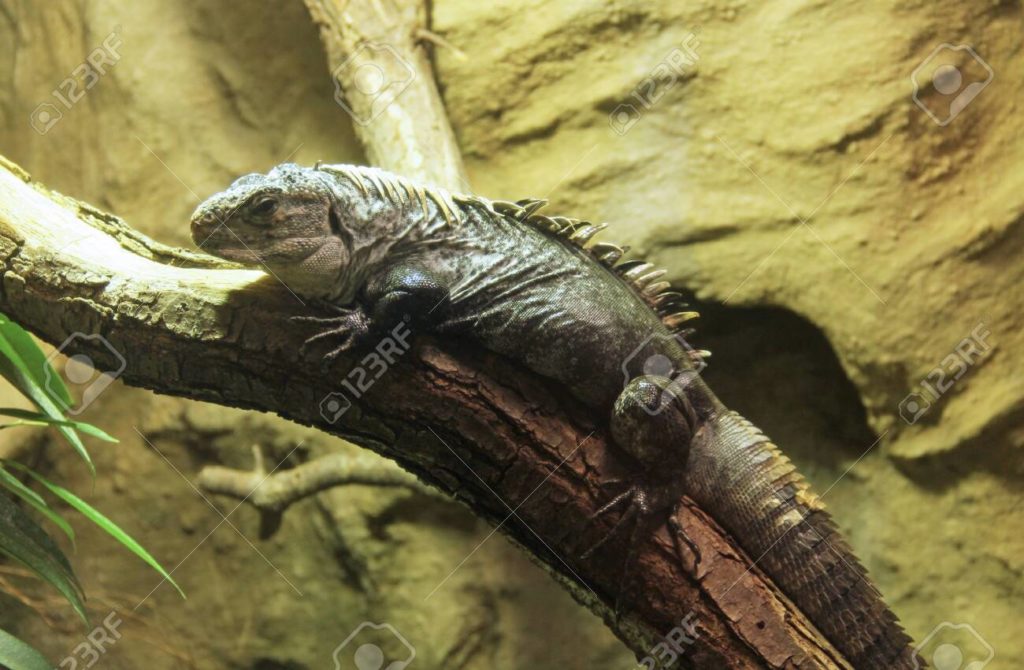ANIMAL: Utila Island Iguana Ctenosaura bakeri Type of Animal: Iguanid Habitat: Brackish mangroves & mangrove forest, lay eggs on beaches Location(s): Found only on Utila, off of Honduras Appearance: Grey-brown to black when young, becomes blue or light gray when older, males larger w/ small dewlap & dorsal crest Food/Diet: Flowers, leaves, stems, fruit, eggs, young green iguanas, geckos, invertebrates Status in Wild: Critically Endangered Conservation: Breeding in zoos, wildlife parks, & breeding centers. Iguana Research & Breeding Station built in April 1997 to save species. Gravid females brought to station & eggs artificially incubated. Young released back into mangroves at 2 years old. Frankfurt Zoo & Senckenberg Nature Research Society (also in Frankfurt) initiated conservation programs for this species. Lifestyle: Found in small groups of a male w/ 2-3 females. Other males solitary. Females nest in small groups on beaches. Additional Info: Called: Male Female Young-Hatchling Group-Leap Weight: Male-6.6 lbs Female-2.2 lbs Gestation: 2-2.5 months Life Span: 15-25 years Body Length: Male-2.5 ft Female-1.8 ft Young-0.5 ft Tail Length: Male-4.7 in Female-4 in Other Fact(s): Main predators of adults are boa constrictors, hawks, dogs, cats, & rats. Grackles, herons, basilisk lizards, vine snakes, parrot snakes, & racers prey on young. Range only covers 3-4 square miles. Critically endangered due to habitat fragmentation, hunting for meat, invasive plants creating unsuitable egg-laying habitats, introduced predators, pollution, development, hurricanes, & egg collection. Also known as Utila Spiny-Tailed Iguana, Utila Island Iguana, Baker’s Spiny-Tailed Iguana, swamper, & wishiwilly del suampo. Adults arboreal while young/juveniles terrestrial. Sexually mature at around 2 years old. Females lay clutches of 6-24 eggs. Due to rarity, very little else is known about this species. Believed to be less than 1,000 of these iguanas left in wild.

